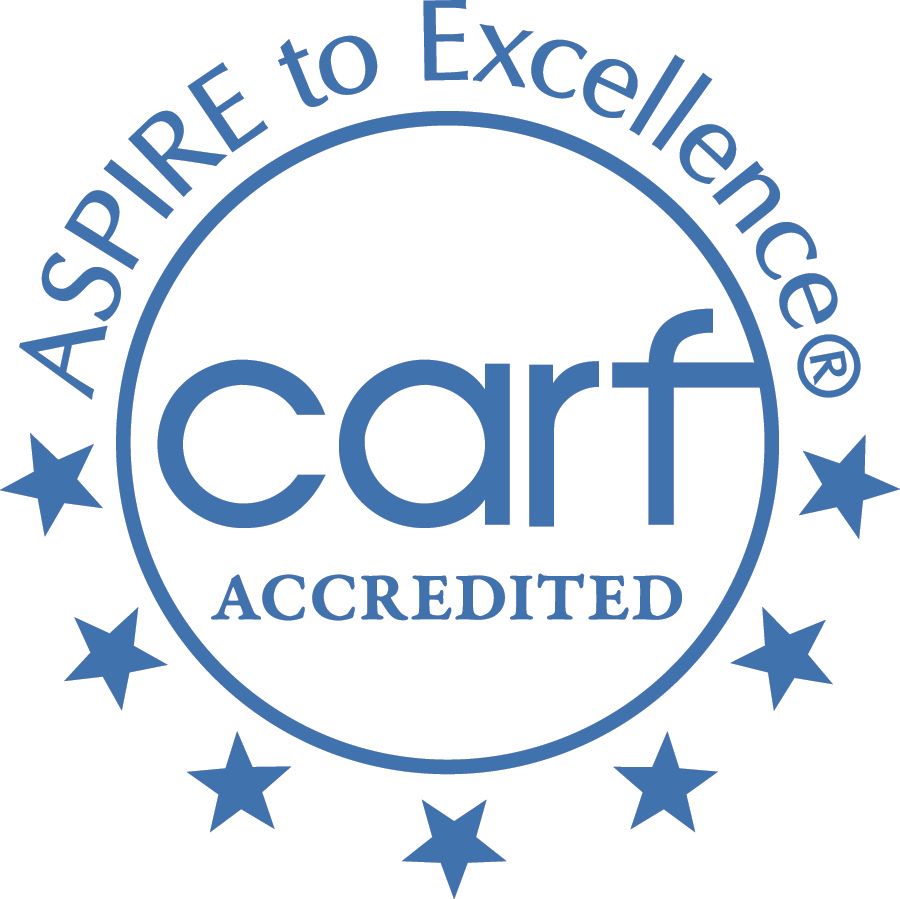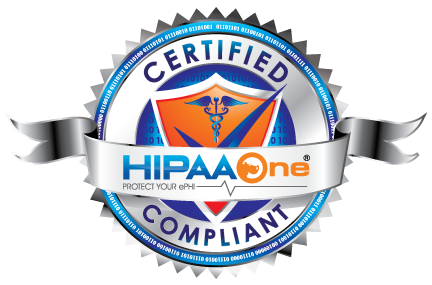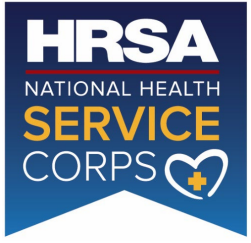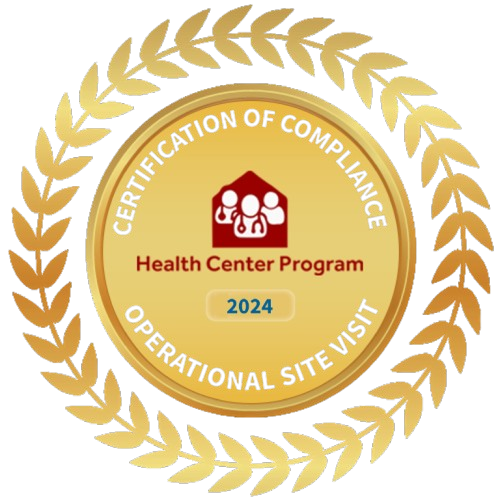Patient Privacy
Mat-Su Health Services - Notice of Privacy Practices
Mat-Su Health Services, Inc. respects your privacy and understands that your personal health information (“PHI”) is very sensitive. The law requires us to protect the privacy and security of your PHI, and we will not give out your information to others unless you tell us in writing that we may do so, or unless the law allows or requires us to do so, as described in this Notice.
About this Notice
The law says that we must give you this Notice explaining our privacy practices and legal duties with respect to your PHI. As explained in this Notice, you have certain rights – and we have certain responsibilities – regarding your PHI. We are required by law to follow the terms of this Notice currently in effect. This Notice applies to records of healthcare and related services provided by all Mat-Su Health Services, Inc. departments: Family Medicine, Women’s Health, Dental, Medically Assisted Treatment, Substance Use Services and Behavioral Health. It also applies to all of our workforce members, including contract employees, trainees or volunteers.
Your Rights Regarding Your Protected Health Information
What is Protected Health Information?
PHI is information that identifies you and is related to the healthcare and related services you receive from us or at other facilities. For example, it may include information about your symptoms, test results, diagnosis, and treatment, or billing and payment information relating to services provided to you. It includes information that we create, or that we get from you, or from another health care provider, health insurance plan, your employer, or a health care clearinghouse.
How We May Use and Disclose Your Protected Health Information
We may use and share your PHI without your authorization in the following ways:
- For Treatment. We may use or share your PHI to help make decisions about your care, and coordinate your care with others who are treating you. For example, we may share your medication list with a specialist that we refer you to, in order to avoid treatment that may cause a negative reaction with your medication.
- For Payment. We may use or share your PHI so that we can bill and receive payment for the services we provide you. For example, we may share certain PHI with your health insurance plan so that it will pay for your services. Similarly, we may share PHI with other entities as needed for us to receive Medicaid or Medicare reimbursement for your services.
- For Health Care Operations. We may use and share your PHI for activities that are necessary to run our organization. For example, we may use your PHI to review the quality of services you receive and to measure the performance of our team members in caring for you. We may also use your PHI to review and follow-up on complaints that you make about your care.
Other Uses and Disclosures of your Protected Health Information
We are also allowed, and sometimes required, to share your PHI in other ways – usually in ways that contribute to the public good, such as public health and research. We have to meet many conditions in the law before we can share your PHI for these purposes.
- Appointment Reminders. We may use and share your PHI to contact you as a reminder that you have an appointment.
- Treatment Alternatives/Health-Related Benefits and Services. We may use and share your PHI to contact you to tell you about possible treatment alternatives or health related benefits or services that may be of interest to you.
- Research. We may use and share PHI for certain research purposes, but we will only do that if the research has been specially approved and rules are in place to protect the privacy of your PHI. Minors. We may share the PHI of minor children with their parents or guardians unless sharing is not allowed by law. However, in cases where minors consent to their own care as permitted by state law, we generally will not disclose the minor’s PHI to their parents or guardians.
- As Required by Law. We will share PHI about you when required to do so by international, federal, state, or local law. For example, we are required by law to report certain types of injuries (e.g., gunshot wounds).
- To Avert a Serious Threat to Health or Safety. We may use and share PHI when needed to lessen or prevent a serious and imminent threat to your health or safety, or to the health or safety of others. But we will only share the information with someone who may be able to help prevent or lessen the threat.
- Business Associates. We may share PHI with our contractors who provide us with services necessary to run our organization. For example, we may use another company to do our billing for services. All of our contractors are required to protect the privacy and security of your PHI.
- Organ and Tissue Donation. If you are an organ or tissue donor, we may use or share your PHI with organizations that handle organ donations as necessary to help organ or tissue donation and transplantation.
- Military and Veterans. If you are a member of the armed forces, we may share PHI as required or specifically deemed necessary by military command authorities. In similar circumstances, we also may share PHI with the appropriate foreign military authority if you are a member of a foreign military.
- Workers’ Compensation. We may use or share PHI for workers’ compensation or similar programs that provide benefits for work-related injuries or illness when required or authorized by law.
- Public Health Risks. We may share PHI for public health activities. This includes sharing information to:
1. The Food and Drug Administration (“FDA”) for purposes related to the quality, safety or effectiveness of an FDA-regulated product or activity;
2. Prevent or control disease, injury or disability;
3. Report births and deaths;
4. Report child and/or vulnerable adult abuse or neglect;
5. Report reactions to medications or problems with products;
6. Notify people of recalls of products they may be using; and
7. A person who may have been exposed to a disease or may be at risk for getting or spreading a disease or condition.
- Abuse, Neglect, or Domestic Violence. We may share PHI with the appropriate authorities if we believe someone has been the victim of abuse, neglect, or domestic violence. We will only make this disclosure if the victim agrees or if we are required or authorized by law to do so.
- Health Oversight Activities. We may share PHI with a health oversight agency for activities authorized by law. These oversight activities could include reviews, investigations, inspections, and similar activities necessary for a government to monitor the health care system, government programs, and compliance with civil rights laws.
- Lawsuits and Disputes. If you are involved in a lawsuit or a dispute, we may share your PHI in response to a court or administrative order. We also may share certain PHI in response to a subpoena, discovery request, or other legal process from someone else involved in the dispute, but only if efforts have been made to tell you about the request or to get an order protecting the information requested. We may also use or share your PHI to defend ourselves in the event of a lawsuit.
- Law Enforcement. We may share your PHI for law enforcement purposes or with a law enforcement official, when required by law, including in response to a court order or warrant, or in specific circumstances authorized by law. For example, we may share PHI if requested by law enforcement to locate a fugitive or missing individual, or to report a crime that occurred on our premises.
- Specialized Government Functions. We may release PHI about you to authorized federal officials for intelligence, counterintelligence, or other national security activities, or for presidential protective services, as authorized by law.
- Coroners, Medical Examiners, and Funeral Directors. We may share PHI with a coroner, medical examiner, or funeral director, consistent with applicable law, so that they can carry out their duties with respect to deceased individuals.
- Correctional Institutions. If you are in jail or prison, or in the custody of a law enforcement official, we may share your PHI with them if necessary for your health, the health and safety of others, or maintenance of safety at the facility.
- Other Uses and Disclosures. We may also disclose PHI as authorized or required by applicable laws for any reason not specifically listed here.
Uses and Disclosures Where You May Object and Opt Out
- Individuals Involved in Your Care or Payment for Your Care. You have the right to tell us whether to share your PHI with friends, family members, or others, and we ask that you notify us in writing if you wish that information be shared, or restricted from sharing, with these individuals. In certain circumstances where you have not told us your preference, we may share your PHI with family members, close friends, or others who are involved in your care or payment for care, without specific direction or authorization from you. For example, we may share your PHI with these individuals if you are present or have the prior opportunity to object and do not, but only to the extent of their involvement in your care or payment for care. If you do not have the opportunity to object, because you are not present, are unconscious, or in cases of emergency, we may share your PHI with these individuals to the extent of their involvement, or for notification purposes, when we determine, based on our professional judgment, that it would be in your best interest.
- Disaster Relief. We may share your PHI with disaster relief organizations, such as to assist with notifying family and friends of your location or condition in a disaster. We will provide you with an opportunity to agree or object whenever we are able to do so.
- Fundraising Activities. We may use or share your PHI in order to contact you for fundraising activities. You have the right to request not to be contacted for these activities.
- Health Information Exchange. We may make your protected health information available electronically through an electronic health information exchange (HIE) to other participating health care providers and health plans that request your information for their treatment or other authorized purposes. Participation in an electronic HIE also lets us see their information about you for our treatment purposes. You are permitted to request and review documentation regarding who has accessed your information through the electronic HIE. You may also opt-out of the HIE at any time.
We have chosen to participate with healtheConnect the health information exchange for Alaska. As permitted by law, your health information will be shared with this exchange to provide faster access, better coordination of care and assist providers and public health officials in making more informed decisions. You may “opt-out” and disable access to your health information available through healtheConnect by asking your healthcare provider to assist with opt out, calling 866-966-9030, X 2, emailing support@ak-ehealth.org, or completing and submitting an Opt-Out form to healtheConnect by mail, or direct secure messaging. Public health reporting and Controlled Dangerous Substances information, as part of the Alaska Prescription Drug Monitoring Program (PDMP), will still be available to providers.
Uses and Disclosures With Your Written Authorization
The following uses and sharing of your PHI will be made only with your written authorization:
1. For marketing purposes; and
2. Sale of your PHI.
In addition, we will obtain your authorization for most disclosures of psychotherapy notes. Other uses and sharing of PHI not covered by this Notice, or not permitted by the laws that apply to us, will be made only with your written authorization You have the right to cancel an authorization at any time by submitting a written notice to our Privacy Officer, which we will honor except to the extent we have already disclosed PHI in reliance on your authorization.
Special Rules for Substance Use Disorder Patient Records
If you receive substance use disorder (SUD) counseling services from Mat-Su, PHI that identifies you as receiving SUD services is protected not only by HIPAA, but also by federal confidentiality rules and regulations at 42 U.S.C. 290dd-2, 42 C.F.R. Part 2 (“Part 2”). Part 2 provides additional safeguards to protect the privacy of your PHI involving SUD services.
In general, Mat-Su must obtain your written consent before disclosing PHI protected by Part 2 outside of Mat-Su or to providers that are not part of your SUD treatment team. This includes disclosures of written or verbal information. However, Part 2 permits Mat-Su to release your PHI which is subject to Part 2 without your consent in certain circumstances, including:
- Between certain staff within Mat-Su’s Behavioral Health program, as necessary for their duties arising out of the provision of SUD services to you, and to Mat-Su staff providing administrative support to that program;
- Pursuant to a specific written agreement between Mat-Su and its contractors/business associates (also called “qualified service organizations”) providing operational services to Mat-Su, such as legal or financial services;
- For certain research purposes, provided certain requirements and restrictions are met to protect your privacy:
- For audits and evaluations of our organization, provided certain requirements and restrictions are met to protect your privacy;
- To report a crime against Mat-Su personnel or on Mat-Su property;
- To medical personnel in a bona fide medical emergency;
- To report suspected child abuse or neglect to appropriate authorities;
- Pursuant to a court order meeting specific requirement; and
- In certain emergency cases involving applicants for SUD services who are minors.
- In other situations, not listed here, we will obtain your authorization before disclosure. You have the right to cancel an authorization at any time by submitting a written notice to our Medical Records Department and/or Privacy Officer, which we will honor except to the extent we have already disclosed PHI in reliance on your authorization.
Your Rights Regarding Your Protected Health Information
You have the following rights regarding your PHI:
- Right to Inspect and Receive a Copy. You have the right to inspect and/or get a copy of your PHI, or to ask us to send your PHI to a third party. Your request must be submitted to us in writing (we have a form for you to use). If your PHI is in an electronic format, you may request that your copy also be in electronic format. We will provide you access in the form and format you request if readily producible. We usually have up to 30 days from your request to make your PHI available to you. We may charge you a reasonable, cost-based fee. We may not charge you a fee if you need the information for a claim for benefits under the Social Security Act or any other state or federal needs-based benefit program. We may deny your request in certain limited circumstances, in which case we will inform you of any right to appeal our denial and how to do so.
- Right to Request a Summary or Explanation. We can also provide you with a summary of your PHI, rather than access to the PHI requested. Or we can provide you with an explanation of the PHI which has been provided to you. However, you must agree in advance to receiving such summary or explanation, and to pay the associated fees.
- Right to Notice of a Breach. You have the right to be notified by us if a breach occurs that may have compromised the privacy or security of your unsecured PHI. We are required by law to provide you with this breach notice.
- Right to Request Amendments. If you feel that the PHI we have for you is incorrect or incomplete, you may ask us to amend your PHI. Your request must be submitted to us in writing (we have a form for you to use) and must tell us the reason for your request. In certain cases, we may deny your request, in which case we will tell you why in writing within 60 days. If we deny your request, you have the right to file a statement of disagreement which will be stored with your record, and included with future disclosures. We may add our own statement disagreeing with your proposed amendment.
- Right to an Accounting of Disclosures. You have the right to ask for an accounting of certain disclosures of your PHI. This accounting will tell you when we’ve shared your PHI, who we’ve shared it with, and for what purpose, for a period of up to 6 years prior from the date of your accounting request. This accounting will not include disclosures for treatment, payment, or health care operations, or certain other disclosures (such as any you asked us to make). We will provide one accounting per year for free, but we will charge a reasonable, cost-based fee if you ask for another one within 12 months. We will inform you of the expected costs in advance.
- Right to Request Restrictions. You have the right to ask us not to share your PHI for certain treatment, payment, or health care operations. You must submit your request to us in writing (we have a form for you to use) and specify what PHI you want restricted and how it should be restricted. We are not required to agree to your request, and we may say “no” if it would affect your care. If we do agree to your request, we may nonetheless disclose your PHI against your requested restriction if needed in emergency circumstances.
- Out-of-Pocket-Payments. If you paid in full for a specific item or service, you have the right to ask that your PHI, with respect to that item or service, not be shared with a health plan for purposes of payment or health care operations. Unless the law requires us to disclose the PHI, we will honor that request.
- Right to Request Confidential Communications. You have the right to request that we communicate with you only in certain ways to preserve your privacy. For example, you may request that we contact you by mail at a specific address, or call you only at your work number. You must submit any such request in writing We will accommodate all reasonable requests. We will not ask you the reason for your request.
- Right to a Paper Copy of This Notice. You have the right to a paper copy of this Notice, even if you have agreed to receive this Notice electronically. You may request a copy of this Notice at any time by contacting our Privacy Officer or visiting our facility.
- Right to Choose Someone to Act For You. If you have given someone healthcare power of attorney or if someone is your legal guardian with authority relating to your healthcare, that person can exercise your rights and make choices about your PHI.
- Right to File a Complaint About Your Privacy Rights. If you feel we have violated your privacy rights, you can file a complaint with us, or with governmental authorities, as described in this Notice. We will not retaliate against you for filing a complaint.
Changes To This Notice
We reserve the right to change this Notice, and the changes will apply to all PHI we have about you. The new Notice will be available upon request, in or office, and on our website at http://www.mshsak.org/
How To Ask for Help, Exercise Your Rights, or File A Complaint
If you have questions, want to submit a request, or want to report a problem about the handling of your PHI, you may contact our Privacy Officer at:
Mat-Su Health Services, Inc.
Attn: Privacy Officer
1363 W. Spruce Avenue
Wasilla, AK 99654
kmunson@matsuhealthservices.org
In order to submit requests, such as for access to PHI, or an amendment to your record, we will ask you to fill out a form that we will supply. For complaints, we ask that you submit your complaint to us in writing, by mail or e-mail, and as soon as possible after the event giving rise to your complaint. You may also call to submit your complaint verbally, which the Privacy Officer will document in writing.
You may also file a complaint with the Office of Civil Rights, U.S. Department of Health and Human Services, by sending a letter to 200 Independence Ave, S.W., Room 509F HHH Bldg., Washington, D.C. 20201, emailing OCRComplaints@hhs.gov, calling toll free at 1-800-368-1019, TDD: 1-800-537-7697, or visiting www.hhs.gov/hipaa/filing-a-complaint/complaint-process/index.html.
If you are receiving SUD treatment services and your complaint is regarding a violation of 42 C.F.R. Part 2, you may also file a complaint with the U.S. Attorney’s Office in Anchorage, reachable by mail at 222 West 7th Avenue, Room 253, #9, Anchorage, AK 99513, or by phone at (907) 271-5071. Violation of the protections established by 42 C.F.R. Part 2 is a crime.
(Last updated: August 12, 2022)











